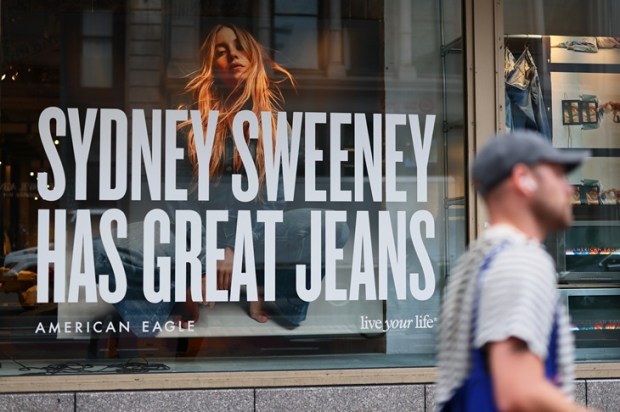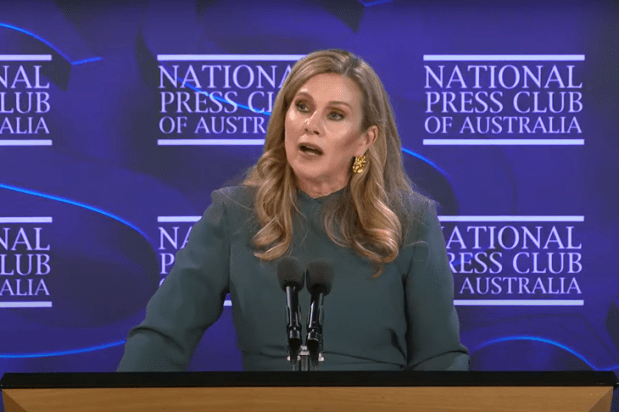It is almost ten years since Julia Gillard delivered her famous misogyny speech in Parliament in response to a motion moved by the then leader of the Opposition, Tony Abbott.
With formidable certitude, Gillard pointed out Abbott’s ‘repulsive double standards when it comes to sexism and misogyny’ speaking to his record of regressive views on women’s role in modern society, and derogatory comments like ‘abortion is the easy way out’.
‘…if [Abbott] wants to know what misogyny looks like in modern Australia,’ Gillard opined, ‘he doesn’t need a motion in the House of Representatives, he needs a mirror.’
In the decade since, Australia has had plenty of opportunities to hold the mirror to itself as a nation still plagued by misogyny, evidenced by its epidemic levels of violence against women and girls. Parliamentary inquiries, royal commissions, independent reviews, and taskforces to address family, domestic and sexual violence have come and gone. Survivors have laid bare their stories, galvanised by the #MeToo movement and revelations of sexual violence in federal Parliament. Governments have declared their commitment to end violence against women and children.
Yet, our woman-hating culture persists.
In fact, Australia’s misogyny problem is getting bigger. Domestic violence rates are increasing, female homelessness is at epidemic levels, and girls subjected to sex trade violence – amplified via the mega-industries of pornography and prostitution – are reporting these harms younger and younger.
In case this wasn’t enough, women are now caught in a race to restore their most basic protections – those specifically intended to counter the discrimination and vulnerabilities women and girls face on the basis of their sex.
With sad irony, we are here partly because of amendments to the Sex Discrimination Act 1984 made by the Gillard government in 2013. These changes removed, without broad consultation, biological definitions of the terms ‘woman’ and ‘man’ altogether, and added a person’s self-declared ‘gender identity’– irrespective of biological sex – as a prohibited reason for unfair treatment.
It is in part why today, women who object to males in their bathrooms and changing facilities, refuges, sports, prisons, and crisis services, can be so readily accused of bigotry, rather than more accurately described as reasonably self-protective.
This has fed and fortified a culture that enables abusive men and silences their victims. It has also inspired a climate in which male perpetrators appear to not only be let off the hook for their crimes, but to be venerated as symbols of progressive politics simply because they have decided to ‘identify’ as a woman.
Most recently, this hypocrisy has been on vivid display on the platforms of Australian mainstream media outlets, which have been busy exalting former AFL player, coach, and domestic violence accused. Dani Laidley (formerly Dean Laidley), who now identifies as a woman, pleaded guilty to stalking his ex-partner in 2020.
The court heard that Laidley, whose conduct allegedly included loitering outside the woman’s home and workplace, photographing her without her consent, harassing her with incessant phone calls and text messages, and leaving unwelcome flowers on her car, had caused the victim fear and apprehension and had significantly ‘affected her security and wellbeing’.
‘Ultimately you, Ms Laidley, have done the right thing. You have accepted responsibility for your behaviour towards [the victim], which has had a very significant impact on her. You’ve affected her sense of security and wellbeing,’ said Magistrate Jack Vandersteen.
Yet in recent weeks, the media has been running a different story, a fairy tale, if you like.
In this fairy tale, the frog, who is really a princess, embarks on a brave journey of Grimm-like redemption, self-discovery, and acceptance. In doing so, they have become a symbol of inspiration for the ‘trans and gender diverse’ community. The princess even got to have their long-awaited ‘Cinderella moment’ at the Brownlow Ball, ‘stealing the show’ in a long white gown.
Strangely, of all those outlets regurgitating the same contrived Cinderella story, none bothered to mention that pesky detail about Laidley’s history with women. Apparently, it doesn’t take much to wash away the crime: just don’t mention it.
Writing for the Herald Sun, Mark Robinson gushed, ‘[Laidley’s] a story and an inspiration. She’s a hero. And she’s brave, maybe braver than anyone you know.’
Braver than Laidley’s alleged victim? It takes great bravery to report an abuser, let alone one who also happens to be a high-profile former AFL star.
But it is not just the media afflicted by these misogynistic double standards. At an AFL grand final event last week, Prime Minister Anthony Albanese posted a celebratory photo of himself standing beside Laidley on Twitter.
Our Prime Minister, who has professed to be ‘passionate’ about addressing violence against women, would be aware that stalking is a form of violence against women. It is a tool in the handbook of coercive control that perpetrators use to intimidate and control their victims. It is a method by which men violate women’s boundaries, privacy, and dignity.
To give Albo the benefit of the doubt, maybe he wasn’t aware of Laidley’s history. Maybe not a single member of his team of advisers was either, despite the effusive media coverage Laidley has had in the last month and which has sparked outrage among women on social media. Maybe they knew, but were not competent enough to caution him.
Given the reactions to his Twitter post from hundreds of women aghast at such a shocking display of misogyny, his advisers must surely know by now.
Women who have been victims of male violence are used to seeing their abusers go on living celebrated and privileged lives, sometimes in positions of great power. It is not uncommon, but its effect on victims is destructive. It sends a loud signal to victims and survivors: you are worth less than the man who abused you. To all women and girls, it says: in this society, you will never be respected.
This is the message being broadcast by mainstream media’s glorifying coverage of Laidley.
This is the message the Prime Minister sends when he grandstands beside them.
As James Macpherson writes, no one begrudges Laidley’s happiness or wellbeing. But the media and the Prime Minister do not need to indulge a misogynistic tale.
It is deeply insulting to women that our Prime Minister sees fit to platform this individual, just days before reiterating his support for paid family and domestic violence leave. The Prime Minister owes the woman Laidley allegedly abused an apology, first and foremost. Australian women also deserve an apology. We deserve better.
A decade ago Julia Gillard rightly called out the sexist double standards of a man whose views reflected a broader political culture of misogyny. Did she imagine that, in 2022, those double standards would be as apparent in her Labor Party? That these double standards would also be displayed by commentators who purport to advocate for the rights of women and girls? That this would include, for example, those who promote women’s safety, but who berate women who demand single-sex spaces as bigoted or transphobic?
These double standards surely apply to those who advocate for survivors of male violence, but who fawn over their perpetrators.
If those who celebrate and laud such men think they know what misogyny looks like, perhaps they need a mirror. The double standards are glaring.

























